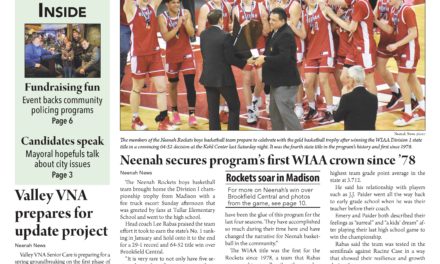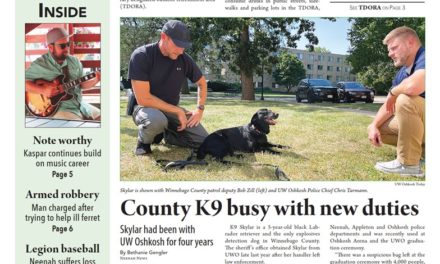By Cheryl Hentz
Neenah News/Herald contributor
Anyone looking for a place to live these days knows that rents seem to be at an all-time high. And if you’ve had any kind of credit problems with a previous landlord, especially if they filed – and won – a court case to have you evicted, renting can be a real struggle, if you’re able to rent at all.
“When somebody does have an eviction on their record, that is kind of that scarlet letter that goes with them for quite some time because these cases are active on CCAP (Circuit Court Access Program) and searchable on CCAP for a very long time,” explained Michael Rust, chief executive of the Winnebago Conflict Resolution Center. “This can be an eight-, 10-, 12- or 20-year time period that these can be searchable.”.
Rust did reference a change made by the director of state courts, which oversees CCAP, that any eviction case dismissed, either because the tenant won at trial or a settlement was reached, would only be viewable for two years.
“It’s still a matter of public record, but it’s no longer viewable on CCAP,” Rust said. “That has been a massive benefit to the tenant community” if they’re able to work something out with their landlord through a means, such as mediation, before a judgment is entered.
Some landlords won’t rent to anyone with an eviction in the last two years, said Lu Scheer, affordable housing director for Advocap, at the December meeting of Oshkosh’s Rental Housing Advisory Board.
“Or they’re requiring income three-and-one-half-times the amount of rent,” said Scheer, whose agency is able to help pay rent and utilities for individuals or families who qualify. “It doesn’t matter that their (rental) income is coming from a different source. They’re not interested in that, or if their rent is being paid by a third party.”
One thing that can be helpful for tenants in this kind of situation is a Rent Smart class. Rent Smart helps individuals who have little to no rental experience and have had difficulty obtaining rental housing. Participants may be first-time renters as they graduate from school, homeowners transitioning to renting, individuals with poor rental or credit history, or residents with other issues that may cause potential landlords to perceive them as high-risk tenants.
Rent Smart provides practical education to help people find, get and keep safe and suitable housing. The program focuses on the knowledge and skills essential for a successful renting experience. It helps participants know and understand their rights and responsibilities as a tenant, as well as those of their landlord. Emphasis is on forming a strong partnership between the two.
The class has six different modules during which participants specifically learn about: planning for and meeting monthly expenses; tips for finding and maintaining affordable housing; how to complete an application and why landlords screen applicants; strategies for building positive relationships with landlords and neighbors; and rights and responsibilities of landlords and tenants. Participants must complete all six modules to earn the Rent Smart certificate.
“The Rent Smart program is a great opportunity for tenants who may have had a prior eviction on their record to show to a potential landlord that they have now learned how to be a better tenant,” Rust said. “It can, in some ways, repair some of that reputational damage that may have been done – if the landlord is in a position where they’re willing to hear about what the tenant has done to repair their record.”
Rust noted that tenants who’ve had an eviction, but subsequently took and completed the program and asked would-be landlords if they would now consider them, have gotten mixed responses.
“Some landlords have been willing to consider that (a prospective tenant has taken the Rent Smart program); others have not,” he said.
Still, it can’t hurt to take the class, according to Timothy Ernst, chair of the Rental Housing Advisory Board and who, at one time, helped teach the Rent Smart program.
“I think the program in general is well researched, well constructed and well presented. I also think it definitely helps potential renters, especially if they’re leasing their first place or if they’ve rented before but had some issues,” he said. “For those renters it shows the landlord or housing provider that they’ve been proactive in wanting to understand their rights and responsibilities. That is always important in starting a rental relationship off strongly for both landlord and tenant.
“Finally, if the class is large enough, people taking the class have the opportunity to potentially meet other tenants who have had similar situations, which is good for community-building and helps make the program more robust and successful in general.”
Ernst recommends anyone signing up to complete all the sessions to get the most information and to obtain the certification that may help them secure housing that otherwise may not be possible.
The Rent Smart class is free, and all modules are currently taught via Zoom because of the pandemic. For more information, email todd.wenzel@wisc.edu or call 920-232-1982.






